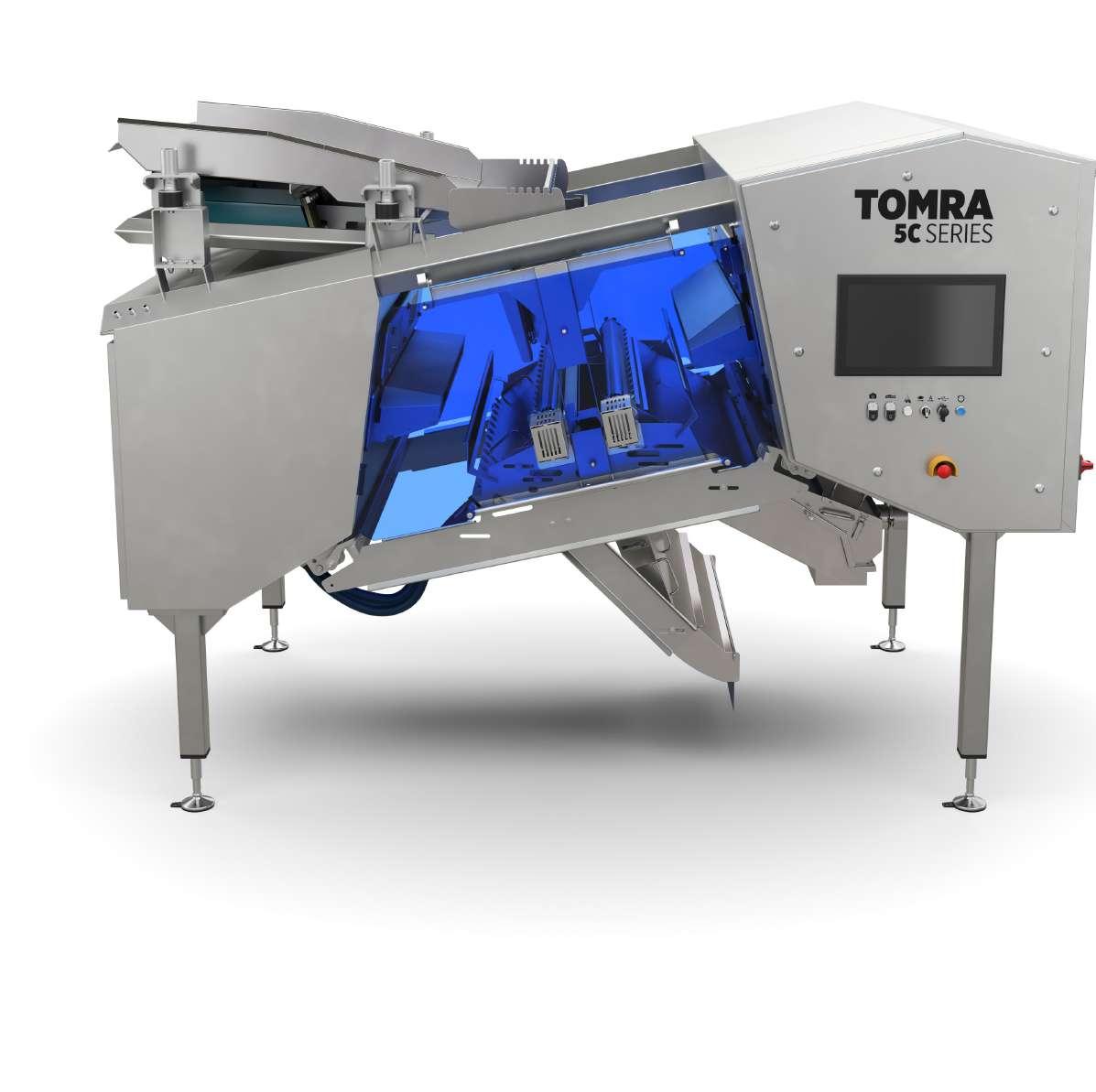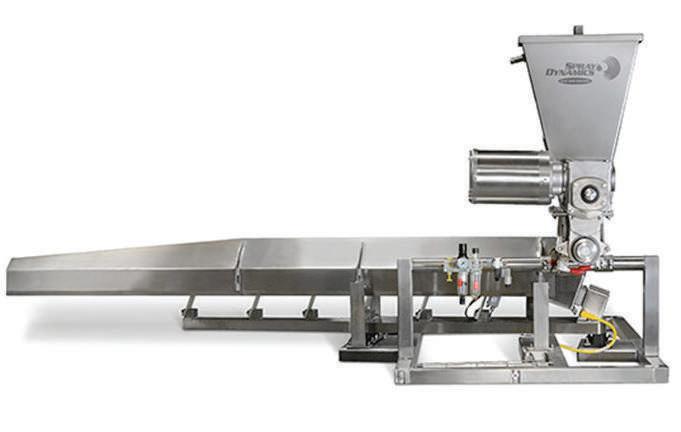
5 minute read
PLANT-BASED ALTERNATIVES
PLANT-BASED CHEESE ALTERNATIVES WITH IMPROVED NUTRITIONAL PROFILE
According to Innova Market, “plant forward” is a worldwide phenomenon and one of the Top Ten Trends for this year. The rising popularity of plant-based products, especially among flexitarians, will according to industry experts lead to growing demand for new formats, plant proteins and higher-end alternatives. One example is cheese alternatives, a product category of high interest to flexitarians. Cheese is often a part of the diet that’s hard to give up. Planteneers doesn’t just focus on taste and texture, but also on the nutritional profile.
Advertisement
With the all-in compounds in the fiildDairy range, Planteneers offers a selection of plantbased alternatives to cream cheese, pizza cheese, and hard cheese in slices and blocks. Alternatives to cheese fillings, for example for plant-based schnitzel and the like, are also no problem. In the development of plant-based products Planteneers is careful to keep ingredient lists short. For example, the latest highlights include a plant-based alternative to shepherd’s cheese that has no E-numbers. New for cultured products are special alternatives to granular cream cheese (cottage cheese). These are based on either almond or oat protein, and so are soy-free. Planteneers also addresses the free-from trend in its plant-based alternative to quark. This clean label system has no E-numbers and can also be used to produce a plantbased version of sour cream. The products are made using almond drinks or almond paste, and thus are also free from soy.
Networked research around protein qualities
The market research results from Innova Market Insights

show the potential that plant-based cheese alternatives have. Consumers like cheese very much, and it is an important product category in the plant-based alternatives market. Dr. Dorotea Pein, Director Product Management at Planteneers, comments, “in terms of technology, plant-based products have reached the point where they are very similar to their animal equivalents. They have the flavour and texture people want, brown well, and with their melting behaviour make any pizza a delicious treat. However, their nutritional value has room for improvement, since unlike with meat alternatives, plant protein cannot be readily used in cheese technology.”
To change this, Planteneers continuously researches new solutions in the company’s own Plant Based Competence Center. With its sister company Hydrosol, Planteneers is also a cooperation partner with the NewFoodSystems innovation space supported by the German Ministry of Education. Other members include the Fraunhofer Institute, the Max Rubner Institute and various universities and research institutions. “As a partner of this expertise network, we are in constant communication with leading scientists in the field of plant protein,” reports Dr. Pein. “We’re also increasing our own research and development work. To this end we’re adding a cheese area to our
Plant Based Competence Center, where we can research new technologies. Simultaneously we’re adding to our expert team. Our goal is to make plant proteins more usable for cheese alternatives, ultimately in order to improve their nutritional value.”

Nutritious cheese alternatives address growth trend
With plant-based alternatives to cream and hard cheese, manufacturers can add new trend products to their offerings. If, in addition to positive technical attríbutes, these also feature nutritional profiles with the essential amino acids needed by the body, they meet consumers’ desire for healthy nutrition, which is important because healthy indulgence remains one of the mega-trends on the international food market. The market for enriched milk alternatives is the best proof of this. “Plant-based drinks enriched with special nutrients are the strongest category by a wide margin,” comments Dr. Pein. “In close collaboration with our sister company SternVitamin we have already developed enriched plant drinks for special target groups, and so gained experience in this area. Now we’re building on these approaches to improve the nutritional profile of plant-based cheese alternatives.
For more information, visit www.planteneers.com
PRINOVA LAUNCHES NEW PREMIXES FOR THE PLANT-BASED REVOLUTION

Prinova has launched a range of premixes for dairy replacement products, to help manufacturers respond to what it describes as a plant-based “revolution”.
In a new White Paper, the company highlights the growing prevalence of vegan and other non-dairy diets and its impact on plant-based markets. The dairy alternative market is projected to grow from USD 21.4 billion globally in 2020 to USD 36.7 billion by 2025 - a CAGR of 11.4%. Similarly, the plant-based protein market is predicted to increase from USD 10.3 billion in 2020 to USD 14.5 billion by 2025 – a CAGR of 7.1%.
The shift towards plant-based diets has created new nutritional challenges. Although vegans generally obtain enough protein, it can be hard for them to consume some micronutrients in sufficient quantities. Vitamin B12, for example, is absent from virtually all plant-based foods.
In order to help manufacturers meet this need, Prinova has developed new nutrient-rich premixes for dairy replacement products, and new recipes to demonstrate how well they work. Made from Prinova’s 85% pea protein, its plant-based milk is smooth and creamy with a full yet light mouthfeel. Meanwhile, its pea protein yoghurt is whiter than most plant-based alternatives on the market.
A single serving of each recipe with 25mg of the premix contains 15% of the recommended intake of Vitamin B12 and 50% of the recommended intake of Vitamin D.
Prinova also offers a premix optimised for plant-based cheeses, which it is showcasing in a vegan cream cheese recipe. The premixes can all be adapted to include additional functional ingredients, such as probiotics, as well as flavourings.
Tony Gay, Head of Technical Sales & NPD for Nutrition at Prinova said: “The rise of plant-based diets is one of the most important trends in the food industry today. It has created a whole new consumer segment with particular nutritional needs, and new challenges and opportunities for manufacturers. One of the best strategies they can adopt is the use of nutrient-rich premixes. Our new recipes demonstrate how easy it is to offer appealing dairy replacement products that meet the nutritional requirements of vegan consumers.”
The new recipes were made using Prinova’s Pea Protein 85%, which is high in Branched Chain Amino Acids and allergen-free. Additionally, Prinova offers a full portfolio of other plant-based proteins which include chickpea, oat and soy, and which can be used in applications ranging from sports nutrition to pet food.

For more information, visit www.prinovaeurope.com










